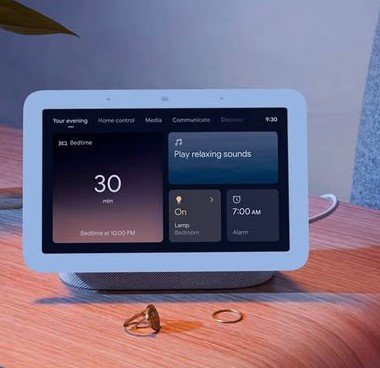Apple’s ambitious move is designed to give homeowners not only more convenience but also enhanced security and privacy, two areas where Apple has earned a reputation for excellence. As the company extends its reach into the smart home market, it may significantly alter the way consumers interact with their homes and personal security systems.
Face ID: The Future of Home Security
Apple’s Face ID technology, which has become synonymous with security and precision in the smartphone world, is poised to redefine how we access our homes. By using facial recognition, Apple plans to eliminate the need for traditional keys or even passwords. This new smart door camera, expected to be launched in the next couple of years, will be able to recognize homeowners with remarkable accuracy, providing a smooth and secure entry.

This breakthrough builds on Apple’s ongoing commitment to privacy and security. The company has long marketed itself as a leader in protecting user data, and this move into home security is no exception. Unlike other companies, Apple’s stringent privacy measures—such as processing facial recognition data locally on the device instead of the cloud—could make this system more trustworthy than existing smart locks from competitors like Google and Amazon.
While Face ID is already an integral feature of Apple’s iPhone and iPad, its application to home security could mark a key milestone in the evolution of smart technology. By leveraging this existing technology in a new domain, Apple could make the smart home market feel more accessible and reliable.
Compatibility with Existing Smart Locks
One of the standout features of Apple’s upcoming smart door camera is its potential compatibility with existing third-party smart locks. Many households today already use smart locks from various brands, and Apple’s ability to integrate Face ID with these products could smooth the transition for users.
This level of flexibility would not only make it easier for existing smart lock owners to adopt Apple’s security technology but also position Apple as a leader in terms of seamless integration with other smart home ecosystems. Whether consumers already own a smart lock or are looking to buy one, the Face ID system would be adaptable, offering the best of both worlds—cutting-edge technology alongside established home security solutions.
With this seamless compatibility, Apple could further solidify its dominance in the home security market. By bringing its premium tech experience into the smart home sector, it may become the go-to brand for users who want the best of security and innovation.
Apple’s Vision for a Broader Smart Home Ecosystem
The Face ID smart door camera is just one piece of Apple’s larger vision for the smart home. As the company continues to diversify its product lineup, it is expected to roll out additional devices, including new security cameras and a revamped HomePod with an iPad-like display.
These devices could work in tandem, allowing users to control their smart home products from a centralized hub. Apple is slowly creating a smart home ecosystem that rivals the likes of Amazon’s Alexa and Google’s Nest, but with a strong emphasis on privacy, security, and user experience.
This expansion into the smart home market is particularly important for Apple, as iPhone sales have plateaued in some of its major markets. To maintain growth and continue innovating, Apple is looking to its smart home ecosystem to drive future revenue streams. This move also aligns with Apple’s broader strategy to dominate the next frontier of technology, similar to its success with mobile phones, wearables, and digital services.
Setting the Stage for 2025: What’s Next?
While there are still many details to be unveiled, the anticipation surrounding Apple’s smart home tech is already palpable. With competitors like Google and Amazon already entrenched in the smart lock and home security market, Apple’s approach to user privacy, seamless integration, and cutting-edge features could give it a distinct edge.
Apple’s product launches typically generate excitement not just among its loyal customers but also in tech circles at large. If the smart door camera and Face ID smart locks are anything like the company’s previous innovations, they could quickly become a must-have feature for homeowners looking to modernize their security systems.
In the meantime, experts will be watching closely as Apple continues to expand its portfolio of smart home products, potentially setting new industry standards in security, privacy, and smart home integration.
